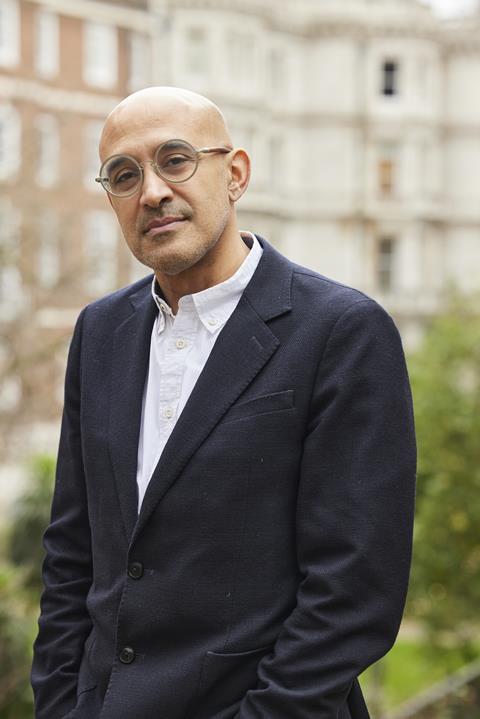Beyond prompting job loss fears, Gen AI could have a more insidious effect on how creative workers view themselves
It’s fair to say that many of the headlines relating to AI range from the ludicrous (“Please don’t eat rocks because an AI told you to.”) to the deeply troubling (“AI chatbots can be manipulated to give suicide advice.”).

Many of these headlines relate to future working practices, too, but increasingly I’m concerned that there is a quieter, more insidious impact from generative AI that we in the film and TV sector can’t afford to overlook: the risk it poses to the identity, purpose, and mental health of creative professionals.
Film and television are industries built on imagination, originality, and artistry. Many of us don’t just do creative work – we are creative people. Our sense of self, our pride, and often our livelihoods are bound up in the scripts we write, the characters we bring to life, the images we craft, and the stories we tell.
So, when technology arrives that can seemingly produce scripts, generate visuals, or mimic our style in seconds, the impact goes far beyond the financial or whether we get the next contract. It strikes at the very heart of who we are. If a machine can do what we do – faster, cheaper, and at scale – what does that say about our worth?
Research suggests that relying too heavily on generative AI for creative tasks can actually dampen neural activity, leaving people feeling detached, uninspired, and even “soulless.” Some researchers call this “cognitive debt”: the dulling of our inner spark when we outsource too much of our thinking.
For people whose identity is rooted in creativity, this debt is not just professional. It’s deeply personal. It risks undermining self-esteem, eroding confidence, and leaving individuals questioning whether they – not just their work – are still valuable.
Protecting Creative Intelligence
What makes humans unique in this moment is not our efficiency but our depth. Machines can produce content, but only people can create meaning.
Let’s call this ‘intelligence with purpose’: the uniquely human ability to make sense of the world, to transform experience into art, and to bring purpose into what we create. AI can generate, but only humans can answer the question of why we create. AI can replicate, but only humans can originate with purpose.
Just as we learned to keep exercising our bodies in an age where machines do the heavy lifting, we must now learn to protect and nurture our creative minds and make sure the fundamental reason of why we create is central to all we do. That means valuing the human spark that cannot be replicated by algorithms. It means ensuring that our sector – one of the most creative in the world – does not lose sight of its humanity in the pursuit of efficiency and profit.
A Call for Awareness and Action
As the chief executive of the Film and TV Charity, I know firsthand how fragile mental health can be in our industry. We already face intense pressures: financial insecurity, precarious contracts, long hours, and a culture where burnout is common. Generative AI risks compounding these challenges by destabilising the very foundation on which so many of us build our sense of self.
That is why we need urgent, open conversations about AI and mental health in Film and TV. We must ensure that creative workers feel valued, supported, and recognised - not just for what they produce, but for who they are. And we must be proactive now, not in hindsight, to prevent a new wave of identity crises and mental health struggles.
Generative AI may be powerful, but it is not human. Our worth does not diminish in its shadow. If anything, this is the moment to reassert the value of human creativity over the profit motive.
A time where we recognise art as being a vital part of what makes us human. Instead of Generative AI being a threat to the Film and TV industry, the film and TV sector can lead the best argument as to why it can never replace humans.
As a first step, if you would like to be a part of any future conversations about the effect and impact of AI on mental health, please reach out by contacting hello@filmtvcharity.org.uk where we can keep you abreast future developments and the opportunity for further discussion. Thank you.
Marcus Ryder is chief executive of the Film and TV Charity








1 Readers' comment